Student Go International Program Facilitates Collaborative Research Internship for FPIK Undip Students with Universiti Putra Malaysia
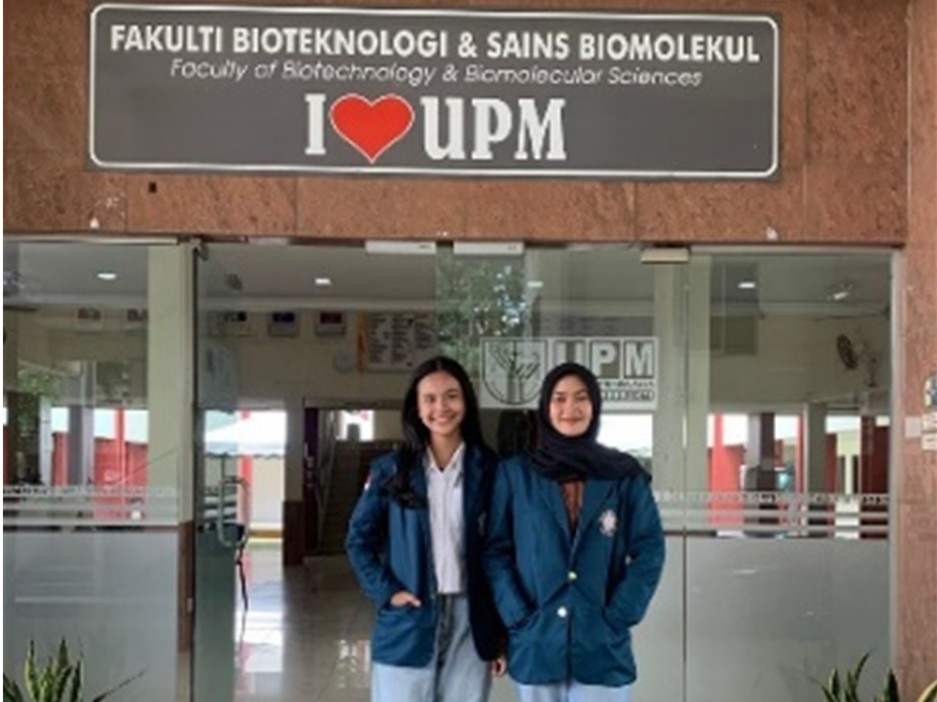
UNDIP, Semarang – Fellycita Marshanda Krisdhiarto and Ghaida Fatimatul Zahra Mustofa, undergraduate students of the Aquatic Resources Management Study Program, Faculty of Fisheries and Marine Science, Diponegoro University, Semarang, have successfully completed an international research internship under Diponegoro University’s MBKM-based Student Go International Program. The research internship was conducted for one month in collaboration with […]
FPIK Undip Collaborates On Joint Research With BRIN
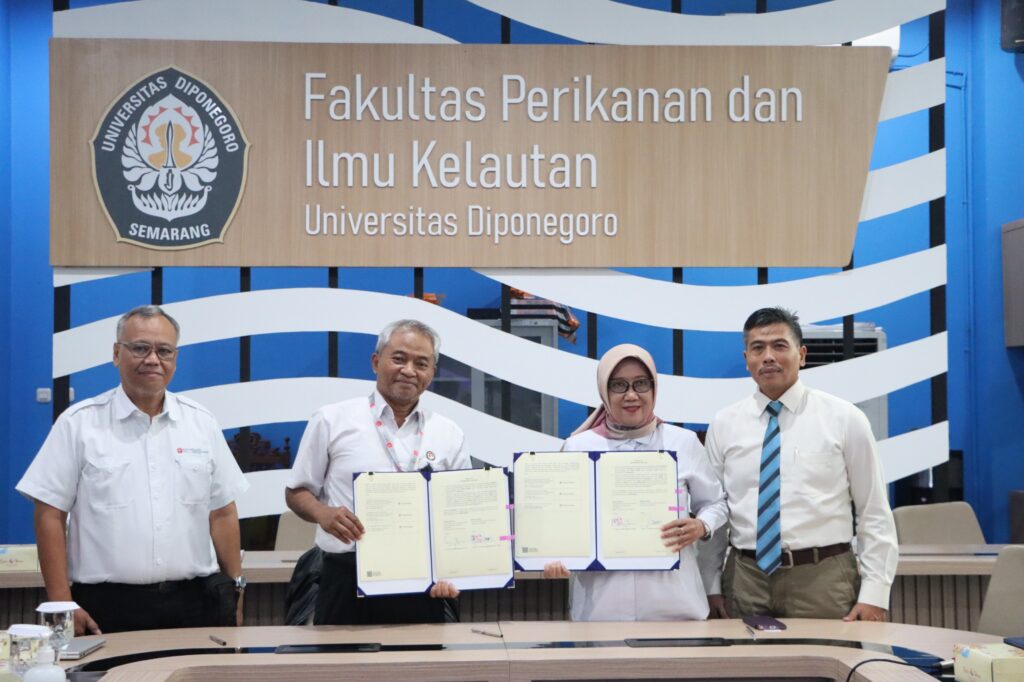
[et_pb_section fb_built=”1″ admin_label=”section” _builder_version=”4.16″ custom_padding=”10px||0px||false|false” locked=”off” collapsed=”off” global_colors_info=”{}” theme_builder_area=”post_content”][et_pb_row admin_label=”row” _builder_version=”4.16″ background_size=”initial” background_position=”top_left” background_repeat=”repeat” custom_padding=”||0px||false|false” global_colors_info=”{}” theme_builder_area=”post_content”][et_pb_column type=”4_4″ _builder_version=”4.16″ custom_padding=”|||” global_colors_info=”{}” custom_padding__hover=”|||” theme_builder_area=”post_content”][et_pb_text _builder_version=”4.27.0″ text_orientation=”justified” custom_padding=”0px||0px||false|false” hover_enabled=”0″ global_colors_info=”{}” theme_builder_area=”post_content” sticky_enabled=”0″] FPIK, SEMARANG – Monday (22/7) the Dean of the Faculty of Fisheries and Marine Science, Diponegoro University (FPIK Undip) Prof. Ir. Tri Winarni Agustini, M.Sc., […]
GEMARIKAN “Gerakan Gemar Makan Ikan” as an Improvement of Nutritional Needs

Kalirejo, Pekalongan (21/07/2023) – Indonesia has the highest fish production in ASEAN. Unfortunately, this is not shown by the level of fish consumption, especially among children. In 2004, the Ministry of Maritime Affairs and Fisheries issued a program, namely GEMARIKAN (Gerakan Memasyarakatkan Makan Ikan). However, there are still many people who do not know about […]
Let’s Care for Waste from an Early Age to Protect Aquatic Ecosystems
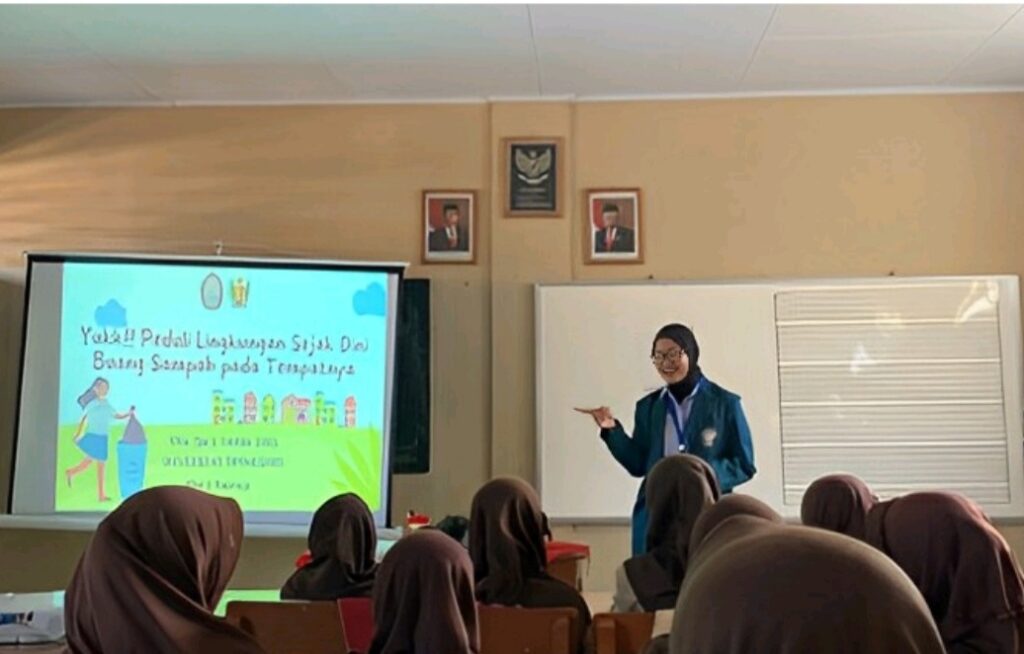
Kalirejo, Pekalongan (21/07/2023) – Waste is a material that is wasted or can no longer be utilized. The waste comes from daily human activities or from natural processes. Waste problems must be quickly handled by the Indonesian Government and the community because waste causes enormous losses for human life and aquatic ecosystems. According to the […]
Practical Training Innovation in Fish Cultivation in Buckets by the Undip KKN II Team in Kutorejo Village

[et_pb_section fb_built=”1″ admin_label=”section” _builder_version=”4.16″ custom_padding=”10px||0px||false|false” locked=”off” collapsed=”off” global_colors_info=”{}” theme_builder_area=”post_content”][et_pb_row admin_label=”row” _builder_version=”4.16″ background_size=”initial” background_position=”top_left” background_repeat=”repeat” custom_padding=”||0px||false|false” global_colors_info=”{}” theme_builder_area=”post_content”][et_pb_column type=”4_4″ _builder_version=”4.16″ custom_padding=”|||” global_colors_info=”{}” custom_padding__hover=”|||” theme_builder_area=”post_content”][et_pb_text _builder_version=”4.23.1″ text_orientation=”justified” custom_padding=”0px||0px||false|false” hover_enabled=”0″ global_colors_info=”{}” theme_builder_area=”post_content” sticky_enabled=”0″] FPIK, SEMARANG – Fish farming has become the main choice in the fisheries sector, but the challenges of increasingly limited land and water resources often […]
DKPP Wonogiri Collaborates with FPIK Undip in Fisheries Management
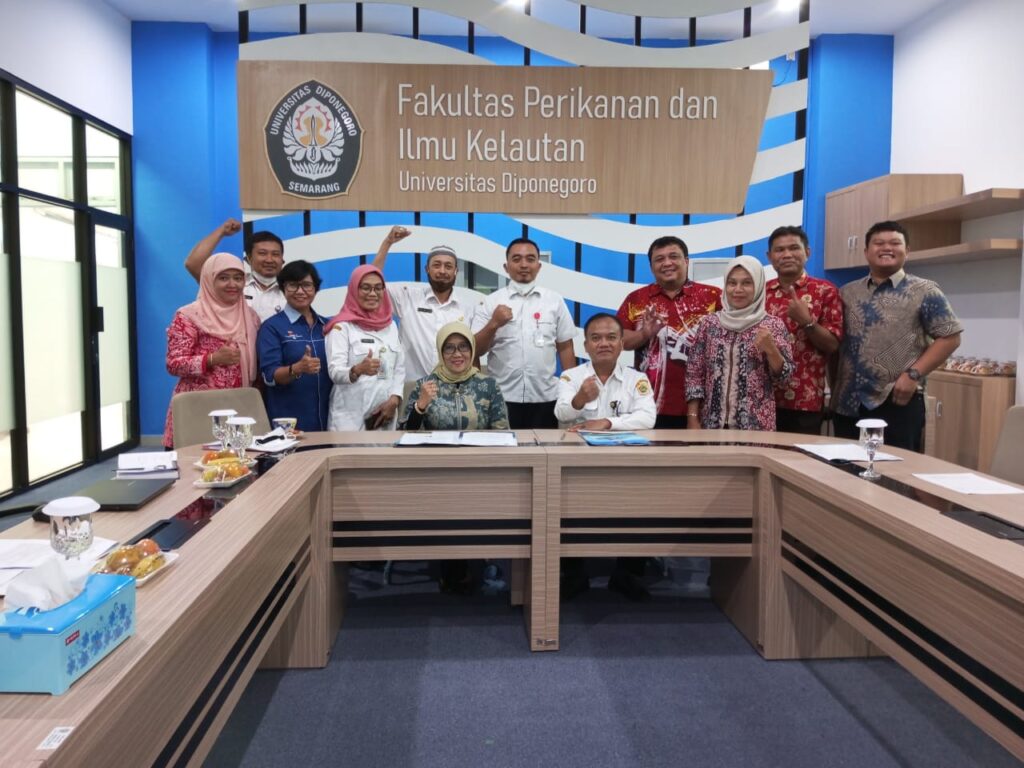
FPIK. Prof. Tri and Ir. Sutardi, Head of the Department of Maritime Affairs and Fisheries and Animal Husbandry of the Wonogiri Regency, signed the MoU on the collaboration “Fisheries Management with a Community-Based and Ecosystem Approach in Wonogiri Regency” in the lti senate meeting room. 3rd ed. A FPIK Undip on 1 February 2023. The […]
FPIK Collaboration with KKP Director General of Marine Conservation and Spatial Planning
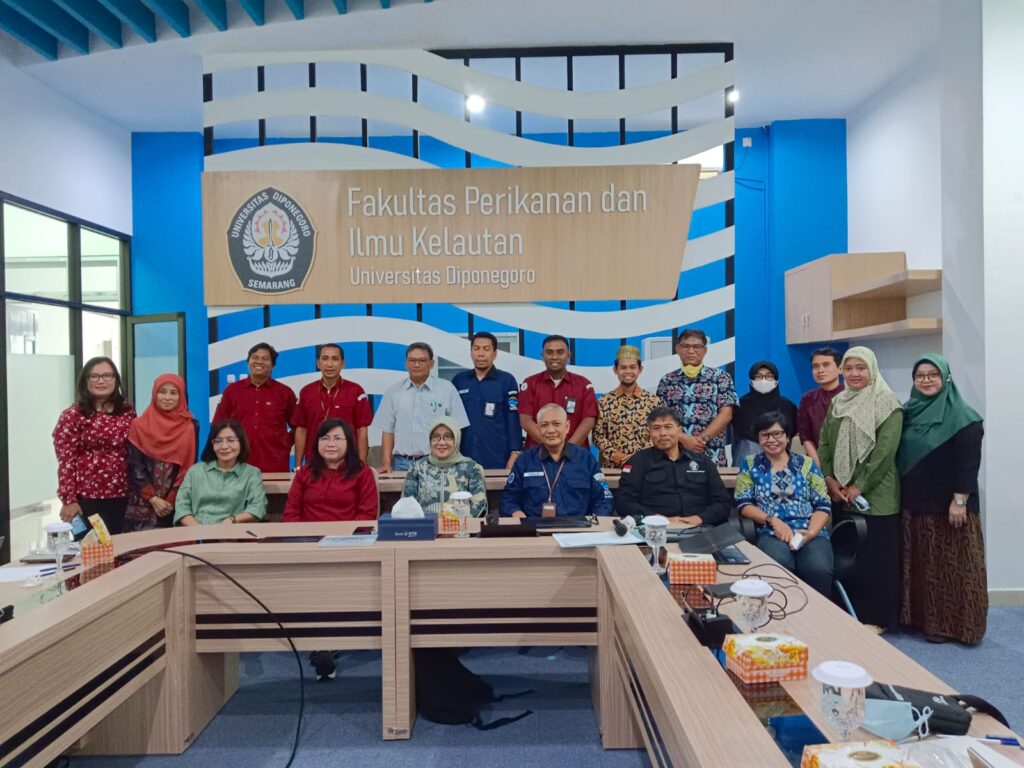
FPIK. Following up on the Partnership Cooperation that was signed by FPIK Undip with the KKP Director General of Marine Conservation and Spatial Planning in December 2022, on Thursday 18 January a meeting was held to discuss the 2023 conservation area management partnership work program.
Double Degree Collaboration with LA Rochelle University
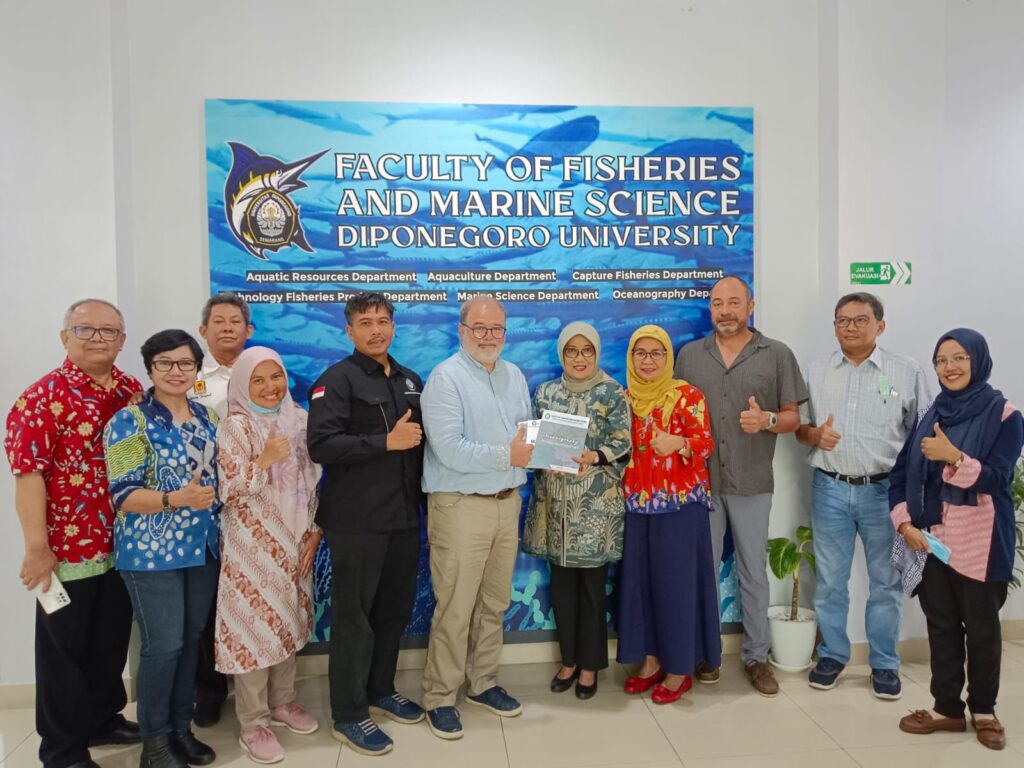
Semarang . Thursday, January 18 2023, FPIK signed an MOU extension regarding the double degree doctoral program with LA Rochelle University. The objectives of the collaboration are: Cooperation in the implementation of double degree master education in Environmental Management and Coastal Ecology Other collaborations for the future such as training programs, doctoral program supervision, and […]
The Mumaco Project
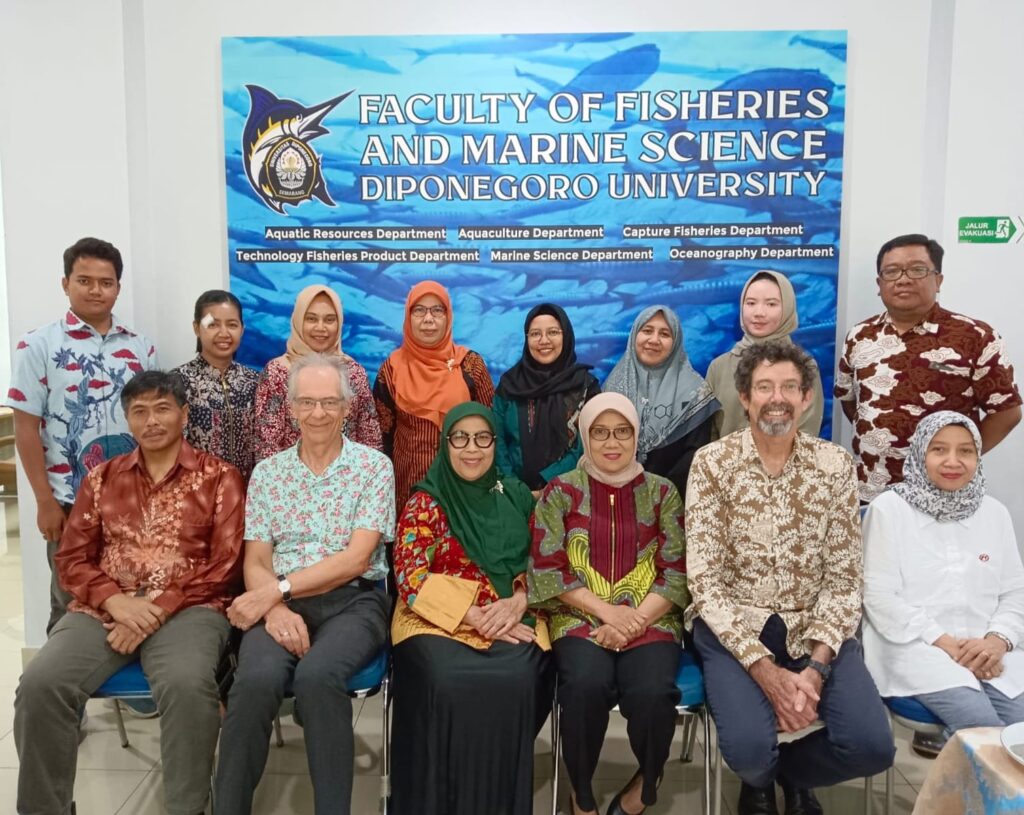
Semarang, FPIK Undip collaborate with TU Delf and WUR to The Mumaco Project. The Mumaco Project is Mussel as Mangrove Facilitator for Coastal Defense was establish from 2021 and program end planned at 2024. Project located at Timbulsloko village Sayung Demak and involved 3 major aspects: Dam (compound structure) as coastal defense by Alejandra Macheno; […]
FPIK Undip and PT BPI Plant Artificial Coral Reefs and Fish Houses from Coal Waste
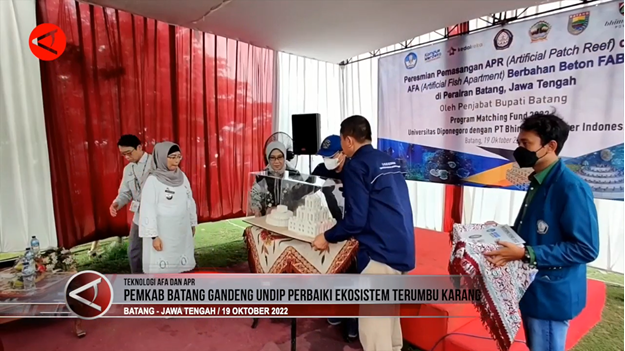
Semarang, FPIK Undip and PT BPI Plant Artificial Coral Reefs and Fish Houses made from Coal Waste. The activity was carried out on October 19, 2022. Hundreds of artificial coral reefs in the form of an Artificial Patch Reef (APR) pyramid and Artificial Fish Apartments (AFA) made of FABA (Bottom Ash) coal are planted in […]
